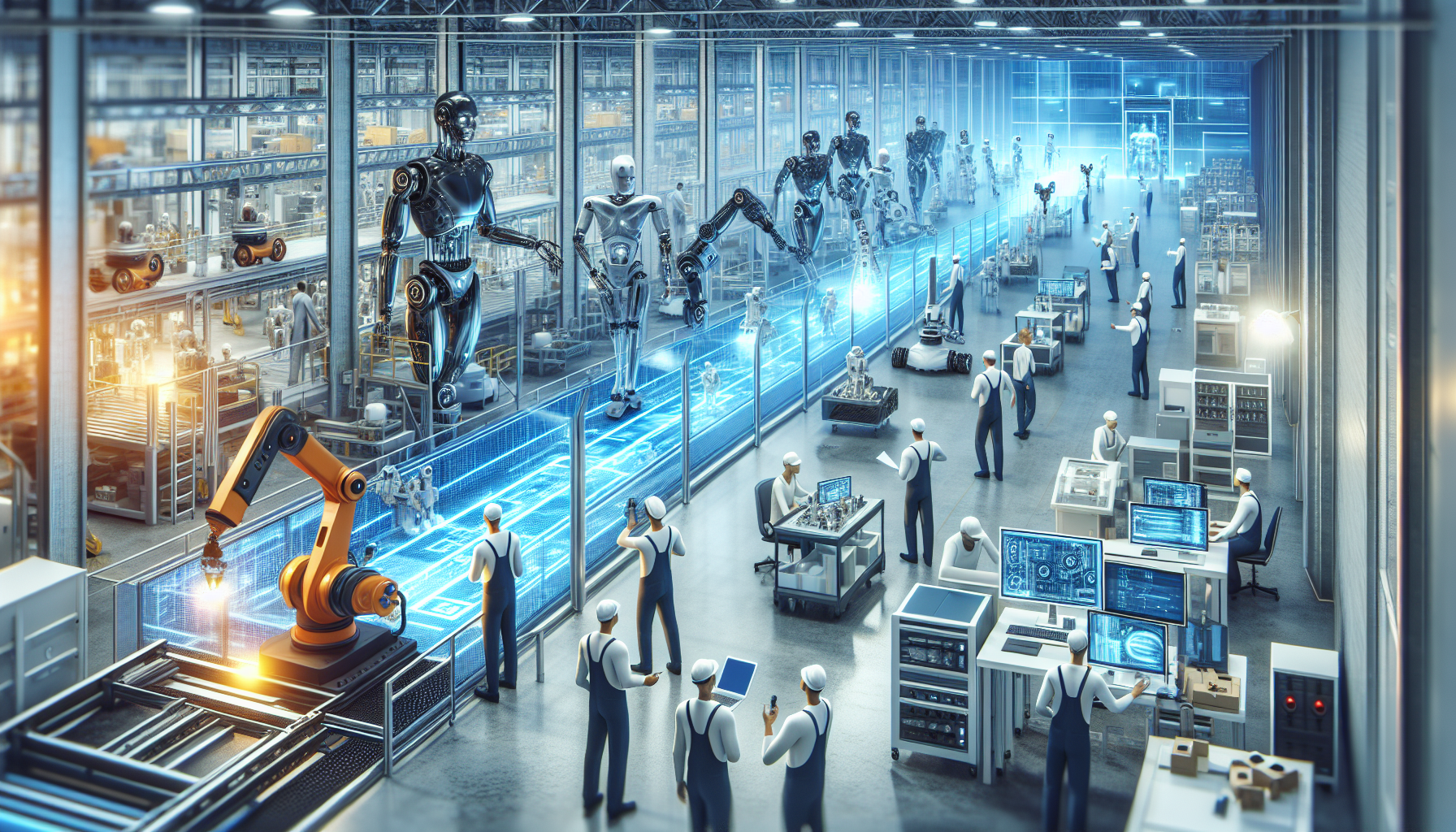Advertisements
We live in an era of rapid and constant change driven by the technological revolution. Automation is increasingly present in various sectors of the economy, transforming the way work is performed and directly impacting the global economy. In this context, it is essential to understand how these transformations are shaping the future of work and what the consequences are for society as a whole.
Automation has the potential to increase the efficiency and productivity of companies, reducing operational costs and enabling tasks to be performed more quickly and accurately. However, replacing workers with machines also raises questions about the future of employment and the need to adapt professional skills in an increasingly automated environment.
Furthermore, automation is redefining work patterns and requiring greater adaptability from professionals. Those who are able to update themselves and acquire new skills will have a better chance of standing out in an increasingly competitive and technological job market.
In light of this scenario of profound transformations, it is essential to reflect on the role of automation in the world of work and how we can prepare for the changes that are coming. Read this article to explore in more depth how automation is shaping the future of work and the impact that this technological revolution is having on the global economy.
Impact of automation on the labor market
The technological revolution has brought with it the automation of processes in several areas, which has had a direct impact on the job market. Many tasks that were previously performed by humans are being replaced by machines and software, which raises concerns about the future of employment.
Advertisements
Unemployment and professional requalification
With the automation of processes, many jobs have been eliminated, which has led to an increase in unemployment in some areas. However, this same technological revolution has also generated new employment opportunities in sectors linked to technology and innovation. Therefore, it is essential to invest in professional retraining to keep up with changes in the job market.
- Programming and information technology courses;
- Training in artificial intelligence and machine learning;
- Development of socio-emotional skills, such as creativity and problem solving.
Impact on the world economy
Automation has a significant impact on the global economy, both positive and negative. On the one hand, business productivity and efficiency increase with process automation, which can generate economic growth. On the other hand, social inequality can also increase, as not all workers are prepared for the new challenges posed by the technological revolution.
It is important that governments and companies are aware of these changes and seek solutions to ensure that automation benefits society as a whole. Education and professional training are essential to prepare workers for the challenges of the future and ensure sustainable economic development.

Furthermore, it is essential that companies adopt policies of transparency and social responsibility when implementing automation, ensuring that the benefits are distributed fairly and equitably. The inclusion of safety and worker protection measures is also essential to mitigate the negative impacts of automation on the labor market. Collaboration between the public and private sectors is essential to create a work environment that promotes innovation, inclusion and sustainable development in a scenario of constant technological evolution.
It is crucial that organizations take a proactive approach to addressing the changes brought about by automation by investing in training and skills development programs for their employees. Furthermore, it is essential to foster an inclusive and collaborative work environment where innovation is encouraged and employee concerns are taken into account. Only through a comprehensive and humanized approach can it be ensured that automation benefits everyone involved and contributes to a fairer and more sustainable future of work.
Advertisements
Conclusion
In short, the technological revolution is transforming the job market through the automation of processes, which has a direct impact on the global economy. The replacement of tasks previously performed by humans by machines and software is leading to an increase in unemployment in some areas, but it is also creating new opportunities in technology-related sectors. Investing in professional retraining is essential to keep up with these changes and ensure employability in the future.
In economic terms, automation can bring benefits such as increased productivity and efficiency for companies, leading to economic growth. However, it is important to consider the negative impact that social inequality can suffer, since not all workers are prepared for the challenges imposed by technology.
It is therefore essential that governments and companies are aware of these changes and seek solutions to ensure that automation benefits society as a whole. Education and professional training are key to preparing workers for the challenges of the future and ensuring sustainable and equitable economic development.
Collaboration between the public and private sectors is essential to maximize the benefits of automation and mitigate its negative impacts. Reskilling and training programs must be widely accessible and tailored to emerging labor market needs. Promoting policies that encourage continuous learning and technological adaptation can help workers stay relevant and competitive.
Companies can also play a crucial role by investing in internal training and adopting socially responsible practices that ensure a fair transition for all employees affected by automation. Developing specific digital and technical skills is essential in this context, and partnering with educational institutions can facilitate the provision of relevant courses and certifications.
On the other hand, it is important for governments to implement policies that promote digital inclusion and accessibility to advanced technologies, especially in disadvantaged regions. Strengthening technological infrastructures and offering incentives for small and medium-sized enterprises to adopt innovative technologies can significantly contribute to creating a more resilient and diverse economic ecosystem.
Therefore, the integration of efforts between governments, companies and educational institutions is essential to ensure that the technological revolution promotes sustainable and equitable economic growth, benefiting the entire society and preparing it for the challenges of the future.



